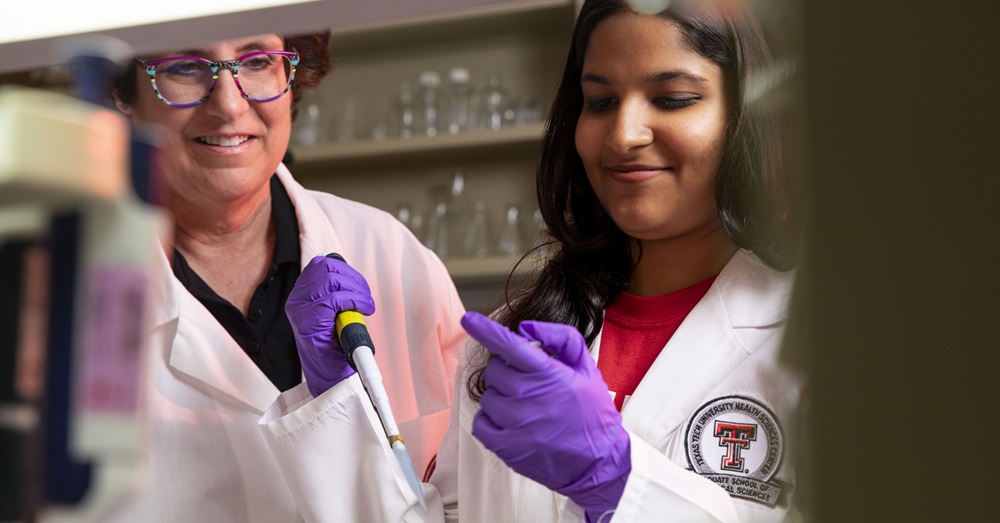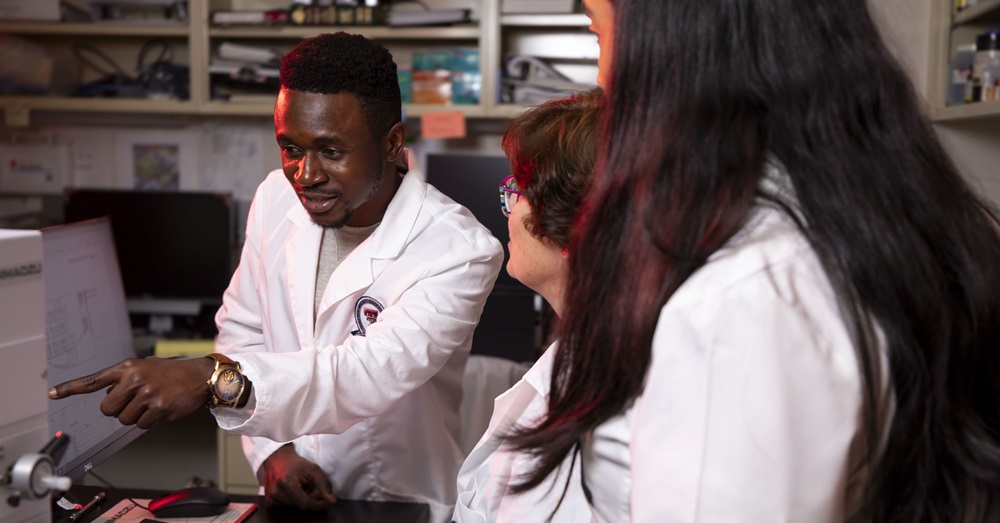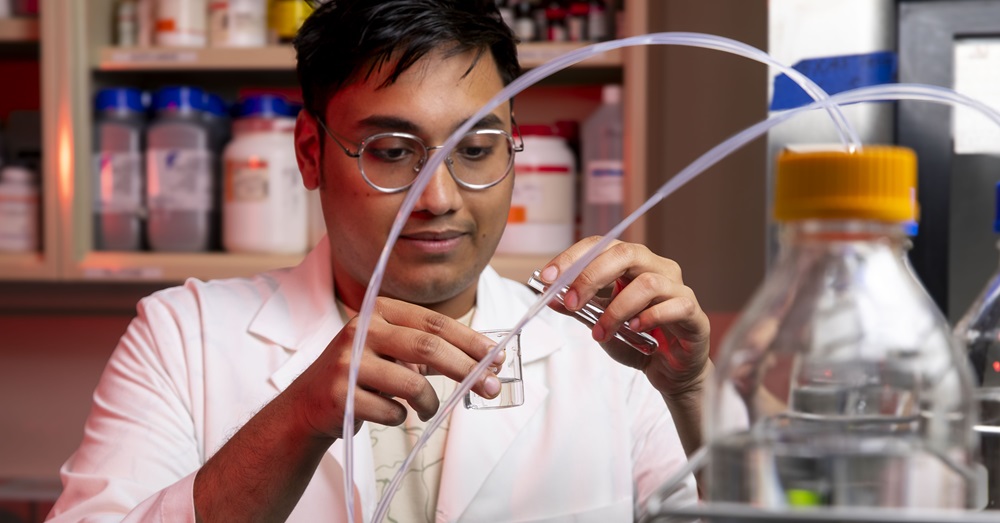Create a Future of Research and Discovery
Each concentration in the Biomedical Sciences Ph.D. program at TTUHSC forms a different path to improving the future of health

At its heart, a doctorate in Biomedical Sciences is about developing life-saving research skills, forming an essential connection between basic sciences and medical advancements. Our program at Texas Tech University Health Sciences Center (TTUHSC) prepares our inquisitive, passionate researchers for a world of discovery surrounding the causes and treatments of diseases.
There are many paths within the Biomedical Sciences Ph.D. program. Students enter as undeclared, allowing them to complete the core curriculum and rotate through faculty labs. Once those steps are completed, students select a mentor and a concentration, both of which turn a comprehensive educational experience into a personal, individualized journey to a fulfilling career.
The Path for You
Our Biomedical Sciences Ph.D. concentrations consist of the following:
Biochemistry, Cellular & Molecular Biology

Students in the Biomedical Sciences Ph.D. program select a mentor and concentration
This research-based concentration prepares you for careers where you can thrive approaching
and solving modern problems in the fields of biochemistry, cellular, developmental,
and molecular biology.
Our advanced courses examine concepts on the forefront of biochemistry, cell and developmental
biology, molecular biology, and cancer biology.
Immunology & Infectious Diseases
This multidisciplinary concentration will provide you with unique learning experiences
leading to a career involving infectious diseases and the immune system.
With focuses on immunology, bacterial pathogenesis, virology, parasitology and molecular
biology, this path integrates several different disciplines.
Molecular Biophysics
This concentration is designed to educate and prepare you for careers in biomedical
and life sciences, with most of the research focusing on membrane proteins.
The proteins that are used in specific areas of research within this program are associated
with important diseases or disorders that include cardiac arrhythmias, genetic diseases,
neurological diseases and cancer.
Translational Neurosciences & Pharmacology
In this concentration, you will have specialized research training in areas such as
pain, epilepsy, neuroplasticity, alcoholism and neurodegenerative disorders.
You will benefit greatly from our Center of Excellence for Translational Neuroscience
and Therapeutics: a team of basic science and clinical faculty with research interests
focused on all aspects of translational neuroscience.
Fulfilling Career Options

A Biomedical Sciences Ph.D. leads to rewarding career opportunities
No matter your choice in concentration, there are several varied career paths that can follow your degree.
Academic career paths include postdoctoral research and faculty positions, while industry career paths include research scientists, entrepreneurial roles, immunologists and positions in pharmaceutical or biotech companies. Outside of academic and industry positions, other potential career paths include government research, sciences communication and consulting.
Becoming a Part of Our Program
Our Biomedical Sciences Ph.D. program leads to diverse and rewarding career opportunities, but of equal importance is that the program empowers you to truly make a difference and contribute to the future of health. Our applications are reviewed holistically, with no single factor determining your admission.
Apply today to build a future in biomedical sciences, or visit our program page to learn more about what the Graduate School of Biomedical Sciences has to offer.
Related Stories
TTUHSC Receives $1 Million Gift from Amarillo National Bank to Expand and Enhance Pediatric Care in the Panhandle
TTUHSC School of Medicine leaders accepted a $1 million philanthropic gift from Amarillo National Bank on Tuesday (Feb. 10), marking a transformational investment in pediatric care for the Texas Panhandle.
Texas Tech University Health Sciences Center Permian Basin Announces Pediatric Residency Program Gift
TTUHSC Permian Basin, along with the Permian Strategic Partnership and the Scharbauer Foundation, Feb. 5 announced a gift that will fund a new pediatric residency.
The Ph.D. Programs that Shape Health Care
The Graduate School of Biomedical Sciences Ph.D. programs at TTUHSC provide the foundation, mentorship and research opportunities you need to pursue groundbreaking work.
Recent Stories
National Academy of Inventors Names TTUHSC Faculty Senior Members
The National Academy of Inventors (NAI) has designated two current and one former TTUHSC faculty researchers as Senior Members.
The John Wayne Cancer Foundation Surgical Oncology Fellowship Program at Texas Tech University Health Sciences Center Announced
TTUHSC is collaborating with the John Wayne Cancer Foundation and has established the Big Cure Endowment, which supports the university’s efforts to reduce cancer incidence and increase survivability of people in rural and underserved areas.
TTUHSC Receives $1 Million Gift from Amarillo National Bank to Expand and Enhance Pediatric Care in the Panhandle
TTUHSC School of Medicine leaders accepted a $1 million philanthropic gift from Amarillo National Bank on Tuesday (Feb. 10), marking a transformational investment in pediatric care for the Texas Panhandle.
